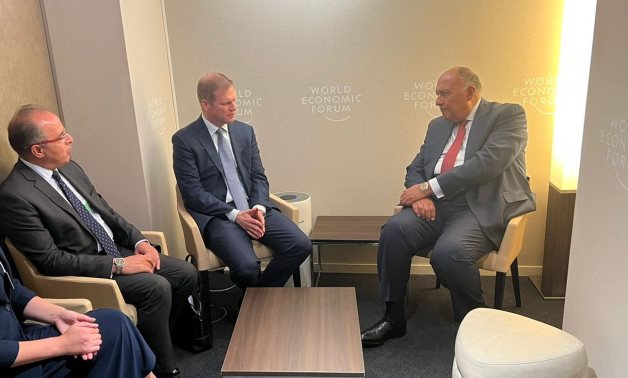
There are some things you should know before you hire a DevOps specialist. These are the most important things to think about: cost, tools used by DevOps consultant, and type of service. Here are some companies which offer consulting services. More information is available below. This article will give a brief overview of DevOps consultation. Furthermore, you will learn how to pick a DevOps specialist.
Information about DevOps Consultants
Finding the right DevOps expert for your company can be difficult. Consider these factors when making your selection. If you are a small company, it is worth considering hiring a consultant. A DevOps consultant with experience and knowledge will help ease the transition to modern development models and meet customer expectations. DevOps is a great way to speed up the deployment of cloud applications and other apps, making it possible to roll them out multiple times per day.
Another important characteristic of a good DevOps consultant is that they are typically outsourced. DevOps consultants have an outside view of operations and can make recommendations based upon their experience with clients. Even though they don't often get involved with coding, they can give valuable insight and help build and implement your overall strategy. They can also suggest best practices that will lead to high-quality, long-lasting results.

Consultants use various tools
A DevOps consulting agency will help you implement best practices to automate your IT operations. They have extensive knowledge of different DevOps project types and will help guide you through the strategy creation process. They will only use the best tools available, like AWS and Google Cloud. DevOps specialists can also assist with troubleshooting. The DevOps consultants' experience with numerous DevOps project implementations will help you avoid common errors.
DevOps consulting firms will use different tools to support the development and production phases. These tools include logs, monitoring, and debugging. These tools make it easy to make changes frequently. Puppet and chef are configuration tools that help system administrators determine the IT infrastructure state. A successful DevOps consulting company also uses Rancid and CFE Engine for autonomous management.
Consulting charges
There are several different types of DevOps consultants. Prices vary greatly from $30-$60 per hour. Some companies prefer to have one consultant working on a particular project, while others want to build a long-lasting relationship. Based on the project scope, both types of consulting may be beneficial. If your organization is considering implementing DevOps, the initial consultation will be essential. Consultants must be clear about the expectations and benefits of their participation. Before consulting, a company should establish a relationship.
Many companies have found that DevOps is a more effective way to accomplish their goals than those who do not. These organizations are made up cross-functional workers who work together in a DevOps organization. The end result is maximum innovation speed and functionality. Typical IT environments waste time waiting for people to do their jobs or trying to solve the same problems repeatedly. This leads to frustration and unhappiness among the employees. Instead of wasting time on these tedious processes, they can instead spend their time contributing value to the company.

Consultancy services can be offered by many companies
DevOps consulting can help ensure that all your developers are on the same page when developing applications. DevOps has many benefits. It can improve productivity, reduce development costs, and speed up time to market. Here are some companies that provide DevOps consulting services. Discover the benefits and drawbacks of consulting a devops expert.
DevOps consultants can help you set up a DevOps approach that will improve your application development process. Innovation is key to ensuring that your company can adapt to changing industry needs and meet customers' demands. DevOps consultants can help increase product deployment frequency, minimize bugs, and improve the quality of your releases. These highly-skilled developers have earned multiple certifications, including Microsoft's Regional Director (MCD), three MVPs, and many other roles.
FAQ
What qualifications do you require to become a Consultant?
It is not enough to have an MBA degree. You must also have experience as a consultant. At least two years experience in training and/or consulting for major companies is required.
You must have worked closely with senior management teams on strategy development projects. This would require you to be comfortable with presenting ideas and getting buy in from clients.
A professional qualification exam like the Certified Management Consultant (CMC), Chartered Management Institute, is required.
Which industries employ consultants
There are many different types. Some are specialists in one type or another of business.
Some consultants are limited to working for private corporations, while others can represent large corporations.
And some consultants work internationally, helping companies all over the world.
What is the difference of a consultant versus an advisor?
An advisor provides information about a topic. A consultant can offer solutions.
Consultants work directly for clients to help achieve their goals. A consultant provides advice to clients through books and magazines, lectures, seminars, and other means.
Who hires consultants
Many organizations hire consultants to assist with projects. This includes small businesses, large corporations and government agencies.
Some consultants work directly for these organisations, while others freelance. The hiring process will vary depending on the complexity and size of the project.
You will likely go through multiple rounds of interviews when hiring consultants before you choose the candidate you feel is the best fit for the job.
How do you choose a consultant to help me?
There are three major factors you should consider:
-
Experience - How much experience does this consultant have? Is she a beginner, intermediate, advanced, expert, or something else? Do her qualifications and knowledge show on her resume?
-
Education – What did this person learn at school? Did he/she pursue any relevant courses once he/she graduated? Are we able to see evidence of his/her learning through the way he/she writes
-
Personality: Do you like this person or not? Would we hire him/her to be our employee?
-
These questions will help us determine if the consultant is right to meet our needs. If the answers are not clear, it may be worthwhile to interview the candidate in person to get more information about them.
How do I get clients to my consulting business?
First, find a subject you're passionate about. You could choose anything from public relations to social media, but it should be something you love. If you don't feel passionate about it, you might need to start small with web design. Once you find the right niche, it is important to know what makes it tick. What problems can it solve? Why should people use it? How can you help them?
It is also possible to approach businesses directly.
You can also offer your services at events such as networking nights and conferences, if all else fails. It's a great way to get in touch with potential customers, without spending too much on advertising.
Statistics
- So, if you help your clients increase their sales by 33%, then use a word like “revolution” instead of “increase.” (consultingsuccess.com)
- My 10 years of experience and 6-step program have helped over 20 clients boost their sales by an average of 33% in 6 months. (consultingsuccess.com)
- WHY choose me: Why your ideal client should choose you (ex: 10 years of experience and 6-week program has helped over 20 clients boost their sales by an average of 33% in 6 months). (consultingsuccess.com)
- 67% of consultants start their consulting businesses after quitting their jobs, while 33% start while they're still at their jobs. (consultingsuccess.com)
- "From there, I told them my rates were going up 25%, this is the new hourly rate, and every single one of them said 'done, fine.' (nerdwallet.com)
External Links
How To
What does a typical consultant's day look like?
The type of work that you are doing will affect the typical day. But generally speaking, you will spend time researching and planning new ideas, meeting clients, and preparing reports.
You'll often have meetings with clients where you can discuss issues and solve problems. These meetings can be conducted over the phone, by email, face-to-face, or online.
The proposal is a document that outlines your ideas and plans to clients. You will need to discuss these proposals with a mentor or colleague before you present them to clients.
After all the planning and preparation you will have to put your efforts into creating some content. Writing articles, designing websites, editing photos or conducting interviews are just some of the options.
Depending on the scope of the project, you may need to do some research in order to gather relevant statistics or figures. For instance, you might want to find out how many people you have and if they are buying more than just one product or service.
Once you have enough information, it is time to present your findings and conclusions to clients. You may give your findings orally or in written form.
After your initial consultation with clients, you need to keep in touch. You can call clients to ask how they are doing or send emails asking for confirmation that your proposal was received.
While this can be a slow process, it's essential to remain focused and maintain good working relationships with clients.